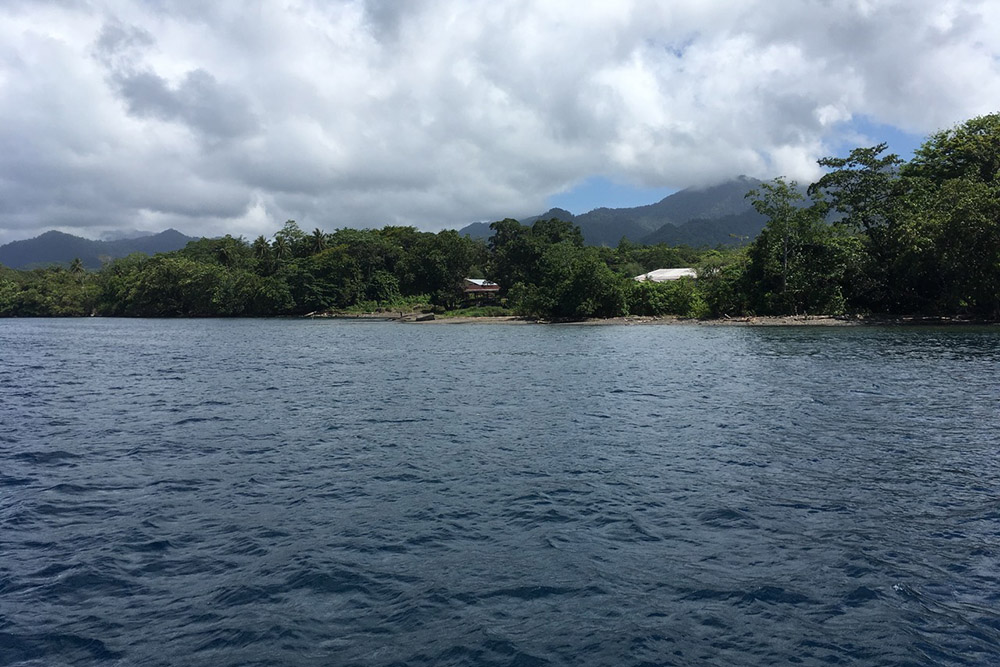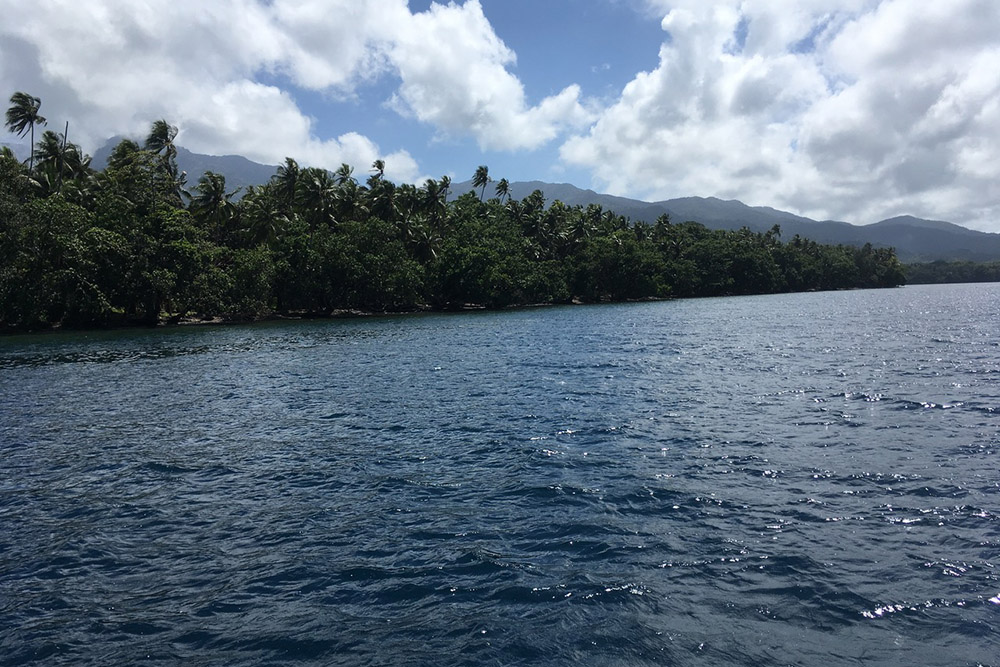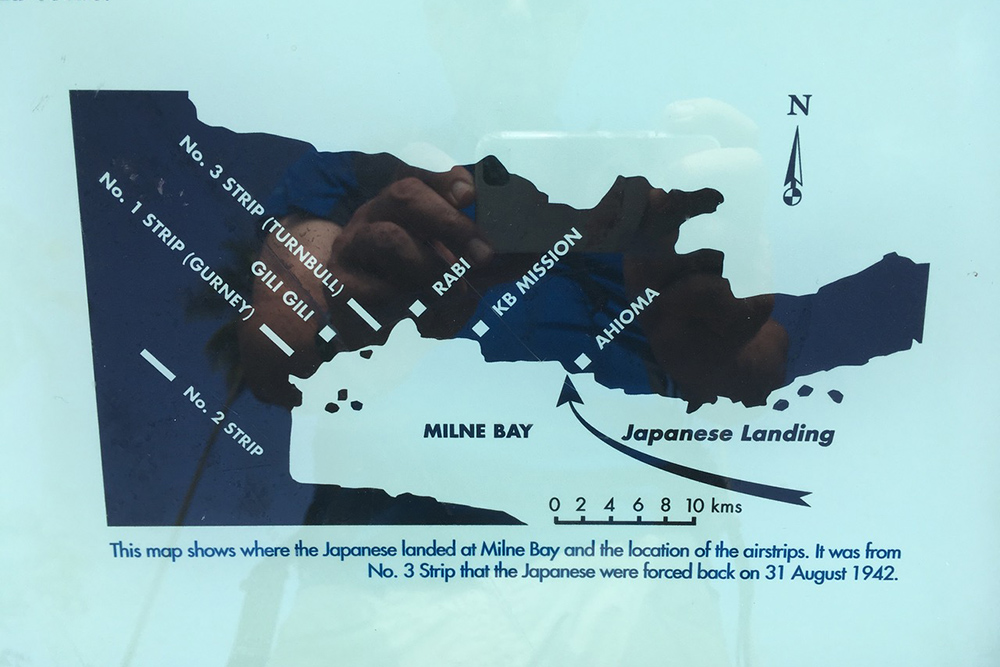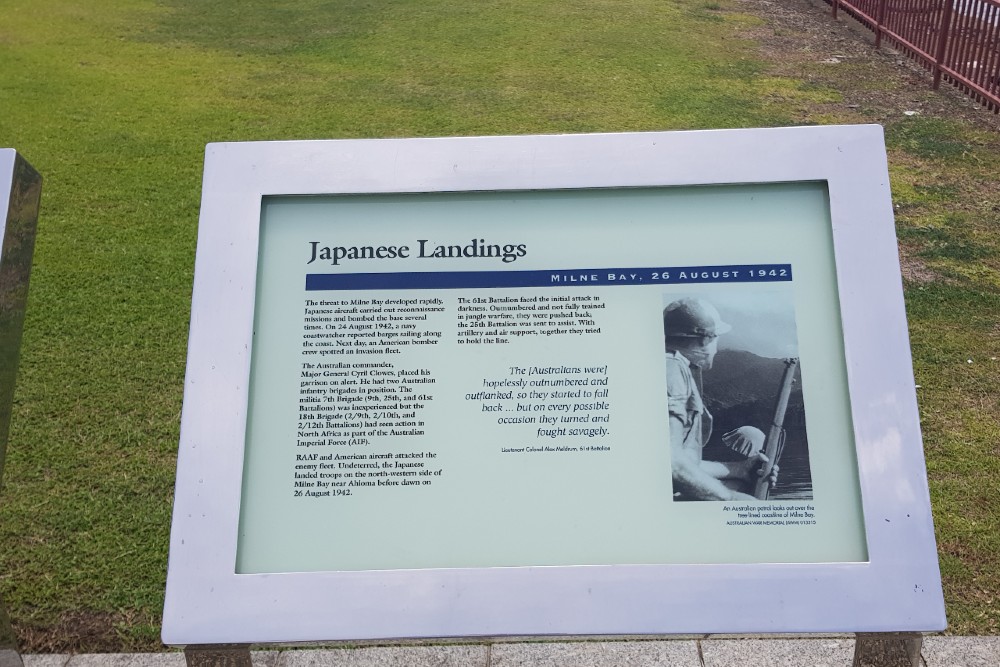Japanese Invasion Beach Milne Bay (A)
On August 25, 1942, as part of its campaign to seize New Guinea (now the state of Papua New Guinea or PNG), the Japanese army landed a battalion on the outskirts of what is now the town of Alotau on the the north shore of Milne Bay.
Where the Japanese landed was near the hamlet settlement of Alioma, and their strategic objective were several Australian landing strips to the west, along the shores of Milne Bay Bay.
Around No. 3 Strip is where some of the heaviest fighting took place. The Japanese attacked from the east; the Australians were dug in front of the strip. The Japanese could not really maneuver between the sea and the jungle.
The battle lasted from August 25 to September 7, 1942, after which the Japanese withdrew, after having suffered more than 1000 casualties.
Although not much remembered today, the battle of Milne Bay was decisive in the history of the Pacific War, as it prevented the Japanese from rounding the southeastern cape of New Guinea and attacking/seizing Port Moresby, the capital.
The fighting at Milne Bay coincided with the U.S. Marine landings at Guadalcanal and the victory there at the Tenaru River (August 20-21, 1942), earlier hints that the Japanese army might not be as invincible as had been indicated since 1931.
A new book on the battle was published in 2020: Michael Veith's Turning Point: The Battle for Milne Bay 1942 - Japan's first land defeat in World War II.
To study the Battle of Milne Bay, it’s possible to take a flight (there are several each day) from Port Moresby to Alotau and stay in one of several nice hotels in the town.
Alotau International Hotel is fairly posh. More moderate, but equally as good, is the Napatana Lodge. Feeble internet connections can make arranging a booking difficult but most nights there are rooms at the inns, and the food at both is excellent.
Do you have more information about this location? Inform us!
Source
- Text: Matthew Stevenson
- Photos: Matthew Stevenson (1, 2, 3), Anthony (Sharky) Ward (4)








